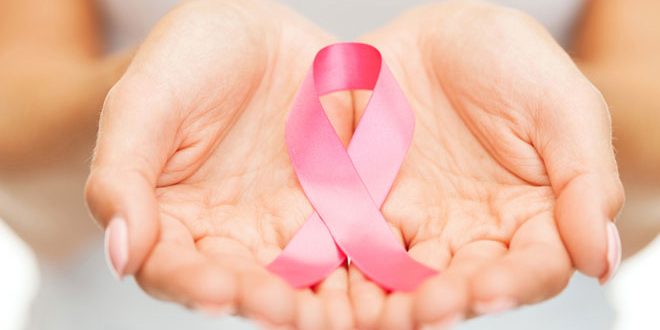Damascus (ST): Once again, the awareness month for the importance of early detection of breast cancer, the “rosy month”, which begins on the first of October of each year, reminds women of the need to conduct periodic medical examinations for early detection of the disease, which is one of the most common cancers they have.
In Syria, the National Cancer Control Committee, public health institutions and NGOs work throughout the year, especially during October, the “rosy month” to provide early detection services for breast cancer and raise awareness of the risk factors that lead to its infection through various activities.
Chairman of the Board of Directors of the Syrian Breast Diseases Society, Dr. Nuri Al-Modarres, confirmed in a statement that early detection raises the cure rate to 95 percent, while it drops to 40 percent in the event of detection of the disease in advanced stages.
Regarding the incidence of breast cancer locally, Dr. Nouri said that it is close to the global rates, as one woman out of 8 women is affected, according to the studies of the Syrian-French Society of Breast Diseases “Ishtar”, pointing out that according to clinical observations, most of the infections are from aggressive and rapidly transmissible types of cancer.
The health system in Syria is making every effort to intensify the dissemination of the culture of early detection of breast cancer through health and awareness-raising events and seminars on the method of breast self-examination and its importance, conducting diagnostic tests in specialized centers and the need to benefit from the free services provided during the rosy month, according to Dr. Nouri.
On the methods of early detection of breast cancer, Dr. Nouri explained that self-examination gives indications of infection, especially at young ages, while diagnostic tests must be done through mammograms for women over the age of 45 years once every two years, pointing to some factors that raise the rates of infection, such as the presence of previous family infection, smoking and random use of hormones.
Dr. Nouri also indicated that the free mammogram campaign for early detection of breast cancer launched by the association last November for women over the age of 45 is continuing in the Red Crescent Medical Complex in Mazzeh, which receives from 2 to 5 women daily after booking a prior appointment with the implementation of the procedures as a precautionary measure to tackle the Coronavirus, about 450 women have so far benefited from the complex’s examinations in this regard.
Breast cancer is not limited to women, as it appears less among men, with rates ranging between 1 and 2 percent, and it is diagnosed when symptoms appear, which are different in breast size or color and feeling pain, and it is detected through the “Echo”.
October was chosen globally as Breast Cancer Awareness Month, which records two million new cases annually.
K.Q.

